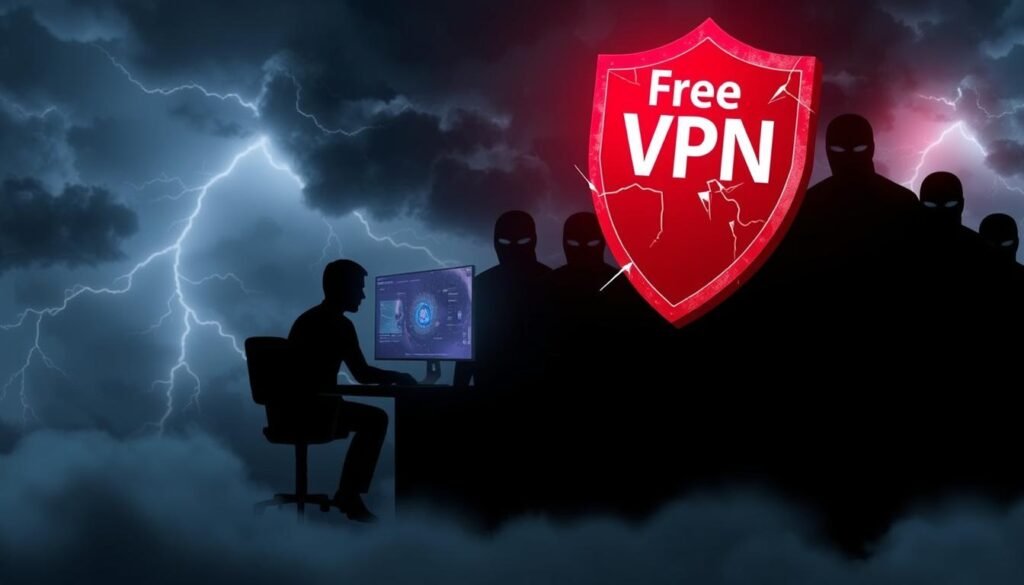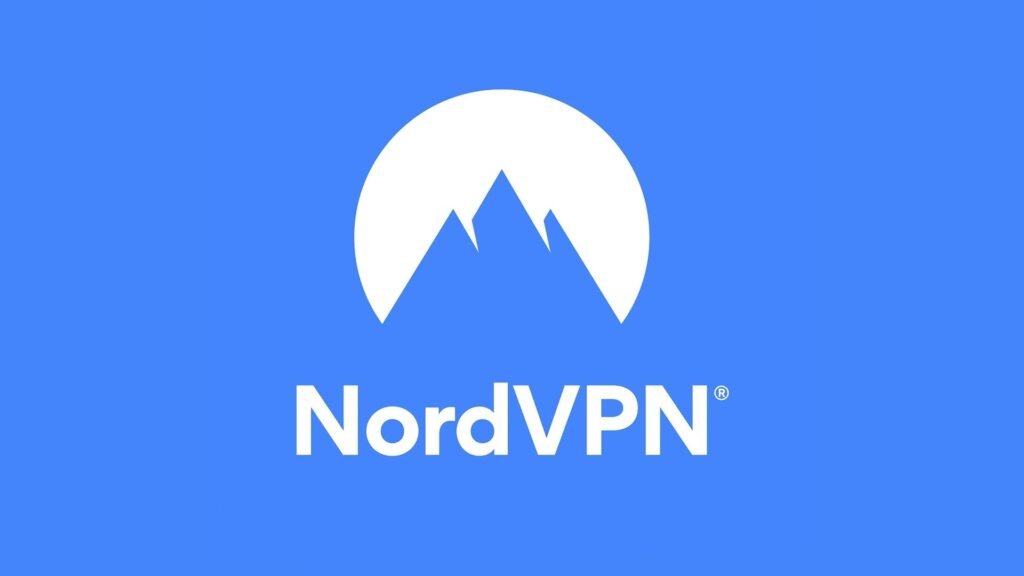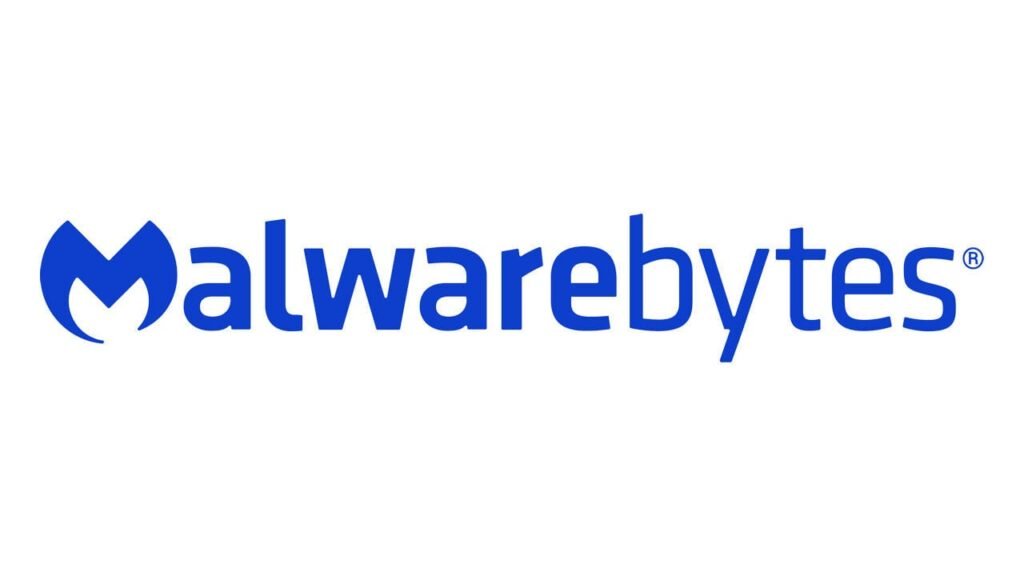Did you know that about 76% of free VPNs might sell your data to advertisers or third parties1? With growing online privacy worries, picking a trustworthy VPN is more important than ever. Free VPNs might seem good, but they can hide dangers that risk your data and online safety. They often use weaker encryption than paid services, making your personal info easy to intercept1.
Key Takeaways
- • Free VPNs can log and sell your data, jeopardizing privacy.
- • Weaker encryption methods might leave your sensitive info exposed.
- • Free VPN services often deliver inconsistent and unreliable connectivity.
- • The sustainability of free VPNs is uncertain, risking sudden service changes.
- • Choosing a premium VPN often results in enhanced data security and performance.
Understanding VPNs and Their Purpose
A virtual private network (VPN) hides your IP address and encrypts your internet. This makes your online activities safer and more private. It helps you browse the web without being tracked, get past geo-blocks, and keep your data safe from hackers.
Many people use VPNs, including remote workers and activists fighting censorship. Knowing how VPNs work is key to protecting your digital rights online.
More people want better online security, leading to more VPN use. It's important to pick a trusted VPN service to keep your data safe. These services use strong encryption and have many servers to keep you anonymous and secure.
Some people choose free VPNs, but they come with risks. Free VPNs often limit your data and speed, affecting your browsing experience. They might not block harmful content well, so be cautious.
A VPN is more than just a tool for the internet. It's a key part of keeping your online life private. Stay informed to make the best choices for your digital safety.
If you're curious about free VPNs, look into the risks. Learning about VPNs can help you keep your online presence safe. For more information, check out this resource234.
The Importance of Online Privacy and Security
In today's digital world, online privacy and data security are crucial. We share lots of personal info online. Using VPNs is a key way to protect yourself from cyber threats.
Studies show that 38% of free Android VPN apps have malware. This is a big risk to your device5. Also, 72% of these services track your online activities, which can lead to more privacy issues5. It's vital to choose VPNs that keep your data safe and private.
It's also important to know that half of popular free VPNs are owned by Chinese companies. This raises concerns about data privacy6. Google has recently banned some of these apps for helping cybercriminals6. Many free VPNs ask for too many permissions, making your device more vulnerable to attacks.
Paying for a VPN service is a smart move for better online security. Unlike free ones, paid VPNs don't sell your data. They also offer faster speeds and more features, making your internet safer and more enjoyable.
Five Key Risks of Free VPNs
Free VPN services can be risky for your online safety. It's important to know these risks to protect your privacy and security.
Security Risks and Vulnerabilities
Free VPNs often lack strong security, making users vulnerable to hacking and malware. A study showed 38% of free Android VPN apps had malware, showing the dangers7. They might use weaker encryption than paid services, making them easier to hack7. Also, their slower speeds can cause internet lag8.
Data Logging and Privacy Concerns
Free VPNs often log user data, raising privacy concerns. About 80% of free VPN apps ask for sensitive data, and many share it with third parties7. They claim to provide free internet but actually track user activity, which is a big privacy issue9.
Slow Internet Speeds and Throttling
Free VPNs are slow because they share servers and have limited bandwidth. Users often face connection drops and buffering, making streaming and gaming hard7. VPNs slow down the internet due to encryption, but free ones make it worse with poor infrastructure and ads8. This makes using popular sites like Netflix frustrating8.
Limited Features of Free VPN Services
Free VPN services have many limitations that can affect your online experience. They often use weak encryption protocols and have data caps. These issues can risk your security and satisfaction.
Weak Encryption Protocols
Free VPNs often use outdated encryption. This makes your data open to attacks. Encryption flaws can lead to data theft and loss of privacy10. Some free VPNs don't use strong encryption at all, making your data easy to intercept11. It's crucial to choose a VPN with strong encryption for your safety.
Data Caps and Restrictions
Free VPNs also have data caps that can be annoying. These limits can stop you from streaming or downloading files. You might hit your data cap fast, limiting your online activities11. This can make you unhappy with the service.

In conclusion, free VPN services are not the best for protecting your online privacy. You need to carefully check the VPNs to keep your data safe1011.
The Impact of Free VPNs on Internet Performance
Free VPNs can slow down your internet. They often have slower speeds than paid ones. This is because they have fewer servers and more users, especially when it's busy12.
Activities like streaming or video calls can become slow. This leads to more delays and connection problems.
If you need a fast and reliable internet for work or fun, free VPNs might not be enough. They often don't have the strong systems needed for smooth browsing13.
It's important to know that free VPNs might not be as good as they seem. They can slow down your internet and might not keep your data safe. Choosing wisely is key to keeping your browsing fast and secure. For more on VPNs and their effects, check this engaging discussion.
Comparing Free VPNs with Paid VPN Alternatives
Free VPNs and paid VPNs have big differences. Free ones might seem cheap, but they often sell your data. This means your online activities can be shared without your consent14.
Paid VPNs, on the other hand, keep your data safe. They use strong encryption to protect your information15. Free VPNs usually don't have the same level of security. They also show ads and ask you to pay for more features, which can be annoying15.
Paid VPNs work better and faster. They help you stream and access content from anywhere15. They also offer support and let you use them on many devices at once14.
In the end, free VPNs might look good at first. But, looking closely, paid VPNs offer much more. They give you peace of mind and make the internet safer for you16.
Why Data Collection is a Major Concern
Free VPN services often collect your data, which can lead to privacy breaches17. They watch your online actions and save your internet history to sell it to advertisers. This has affected over 20 million users, showing how risky it is17.
These services use weak encryption, like PPTP, making you open to cyber threats18. They might collect your sensitive data, which can lead to internet surveillance. This goes against the protection you're looking for.
Free VPNs also have limited options and server choices18. This means slow speeds and buffering, making your online time less enjoyable. These issues can also expose you to more threats.
They store your data usage history on insecure clouds17. This is risky and can let hackers get your information. You'll also face annoying ads and pop-ups, as they make money from ads.
The misuse of your data can lead to targeted ads, identity theft, and privacy violations. Knowing these risks helps you choose safer options online.
| Concern | Description | Impact |
|---|---|---|
| Data Collection | Many free VPNs track and sell user data | Privacy breaches and targeted ads |
| Weak Encryption | Protocols like PPTP are often used | Increased vulnerability to cyber threats |
| Slow Speeds | Overcrowded servers lead to lag | Frustrating user experience |
| Insecure Storage | Data may be saved on unsecure clouds | Higher risk of data breaches |
The Risks of Malware with Free VPNs
Using free VPNs can put you at risk of malware. About 38% of free Android VPN apps have malware or show ads, showing the dangers7. Bad providers hide harmful code in their apps, risking your device with cyber threats18. Free VPNs often lack strong security and use old encryption, making them easy targets for hackers18.
Free VPNs can also sell your browsing data to others, hurting your privacy and leading to ads18. It's key to know that 80% of free VPN apps ask for your personal info, and 84% leak it to others7. So, checking a VPN's reputation before using it is vital to avoid harm to your device or stolen data.
In short, choosing trusted VPN services that care about your safety is wise. Stay away from the dangers hidden in free VPNs. Reliable online security is more important than ever in our connected world.

The Risks of Free VPNs: What You Need to Know
Exploring virtual private networks (VPNs) means knowing the risks of free ones. They might seem good because they're free, but the free VPN dangers are real.
Free VPNs often limit your internet use. They might cap your data at 500 MB to 10 GB a month. This can be a problem if you use a lot of data19. They also slow down your connection speeds, making things harder to do online19.
Security is a big worry with free VPNs. Some insert ads, sell your browsing data, or spread malware. This puts your personal info at risk20.
Good VPNs promise not to keep logs to protect your privacy. But not all free ones do this. Services like NordVPN regularly check their systems to keep your trust. This is something free services rarely do20. So, paying for a VPN usually means better security and privacy.
In today's online world, knowing about VPN risks is key. It helps you choose wisely for your online safety. Premium VPNs are affordable and keep you safe without the free VPN problems. Choosing a paid VPN means better privacy and no hidden dangers.
Conclusion
Free VPNs might seem like a good deal at first, but they come with big risks. They often have small data limits, like 500 MB to 10 GB, and slow speeds. This is because they're crowded and don't have enough resources1921.
Using free VPNs can also put your personal info at risk. Many sell your data to others, which can lead to leaks21.
Your safety online is very important. That's why choosing a good VPN is key. Paid VPNs offer better security, no data limits, and fast help when you need it21.
More people are seeing the dangers of free VPNs. So, it's smart to invest in a reliable paid VPN. It keeps your data safe and makes your internet better.
Keeping your online presence safe is crucial. With so many dangers online, a good VPN is essential. It keeps your info private and safe from others19.
So, it's time to make your online security a priority. Protect yourself today.




